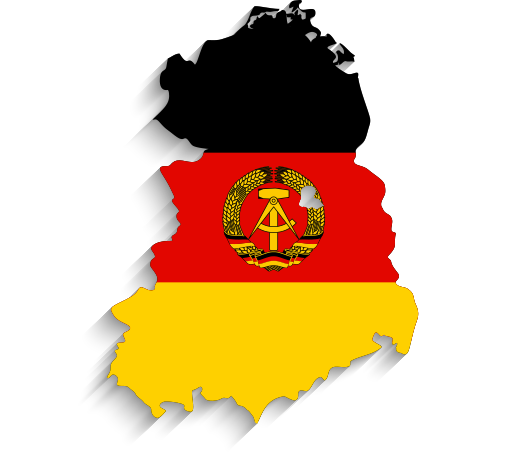(Grant Agreement n. 669194)
In the years of economic reform in the 1960s, academic expertise on economics had a much higher standing in the GDR than in subsequent periods. This trend is exemplified by the declining role of the Central Institute for Socialist Economic Planning (Zentralinstitut für Sozialistische Wirtschaftsführung) headed by Helmut Koziolek. His advice on economic matters and reform certainly counted under the then First Secretary of the Socialist Unity Party of Germany (Sozialistische Einheitspartei Deutschlands or SED) Walter Ulbricht. This was no longer the case with Erich Honecker in power.
However, in the mid-1970s, Honecker for once entrusted Koziolek and the President of the Academy of Social Sciences, Otto Reinhold, with the task of assessing the effects that external economic factors would have on the Unity of Economic and Social Policy. Their report pointed in the same direction as the warnings of the state planners and bankers: the rising price of raw material would demand action and they recommended a price reform. They also cautiously advocated for certain elements of the reform policy of the 1960s to be reinstated. However, neither their advice nor their attempt to regain academic influence on economic policy at the SED top level were successful. Honecker disregarded their advice as “capitulation” but at least let them know that it would not have personal consequences for them.
Both the Foreign Ministry and the Foreign Trade Ministry had their own research institutions, yet it seems that academics were not regularly consulted on basic questions or day-to-day matters in the GDR’s economic relations with the West and the European Economic Community (EEC). However, even the scarce archival evidence on such consultations suggests that academics had a clear understanding of the existing problems and could not figure out the rationale behind the overall GDR approach. Particularly regarding relations and trade with the EEC, there seemed to be no strategy at all. In 1977, an academic commenting on a paper dealing with the East German stance on relations between the Council for Mutual Economic Assistance (CMEA) and the EEC wondered why the GDR was so reluctant to conduct technical contacts with the Commission and asked whether a framework agreement with the Community would not be the best solution. Furthermore, he held the view that relations with the EEC were primarily shaped by the West German stance within the Community and it was in the GDR’s interest that no questions regarding intra-German trade were raised during the CMEA-EEC negotiations. However, such seldom clear-cut open academic remarks on ministerial papers had no visible influence on politics.
Nevertheless, academia still made its contributions to debate in other fields. Regarding relations with the West and analysing the EEC, research institutes like the Institute of International Politics and Economics (Institut für Internationale Politik und Wirtschaft or IPW) and the Institute of International Relations in Potsdam-Babelsberg must be considered. Regarding the EEC, the IPW was of utmost importance. Founded in 1971, it primarily focused on West Germany, but right from the start European integration was also on its research agenda. Because of its scientific contacts with the West and analyses based on Western materials, the IPW was special within the GDR. However, at least in the first few years it remained an ideology-driven think tank presenting results according to the official party line. Over the years, the IPW’s analyses improved and so did its assessment and understanding of the EEC as a growing and more integrated Community. Despite still affirming the irreconcilable antagonisms of capitalism, the IPW gradually recognised the EEC member states’ ability to compromise in decision-making processes. Occasionally, the IPW prepared analyses for the SED Politburo. It is impossible to judge their actual influence on the leadership’s views on European integration. However, the academic perspective at least foreshadowed later changes at the top level. In 1976 the IPW analysed the EEC Tindemans report for the Politburo. It was perceived as an attempt to overcome the crisis in Western Europe and what was considered so far the severest crisis in its integration process. Instead of predicting a foreseeable failure, as ideology would have it, the IPW analysis acknowledged the will and the ability of the EEC to overcome crises, and expected that its member states would be able to enhance West European integration, although through multiple trade-offs and in most cases compromises on the lowest common denominator. The IPW analyses produced in the following years show that its basic assessments on the prospects for integration were stable and in the course of the 1980s it regarded the EEC increasingly as a potential partner. In contrast, the assessments by the ministries’ research institutions remained more cautious.
* This text summarises some of the research findings of PanEur1970s team member Maximilian Graf, which are published as a chapter in PanEur1970s’ academic edited book. For a link to the e-book, please see the GDR’s “Overview” webpage of this map.
|
Information for the Politburo
SAPMO-BArch, DY 30/J IV 2/2J/7124
In this analysis by the Institute of International Politics and Economics for the Politburo on the “Tindemans report” the prospects of European integration were valued in an unprecedeted positive way. - Available only in the archive: https://www.bundesarchiv.de |
